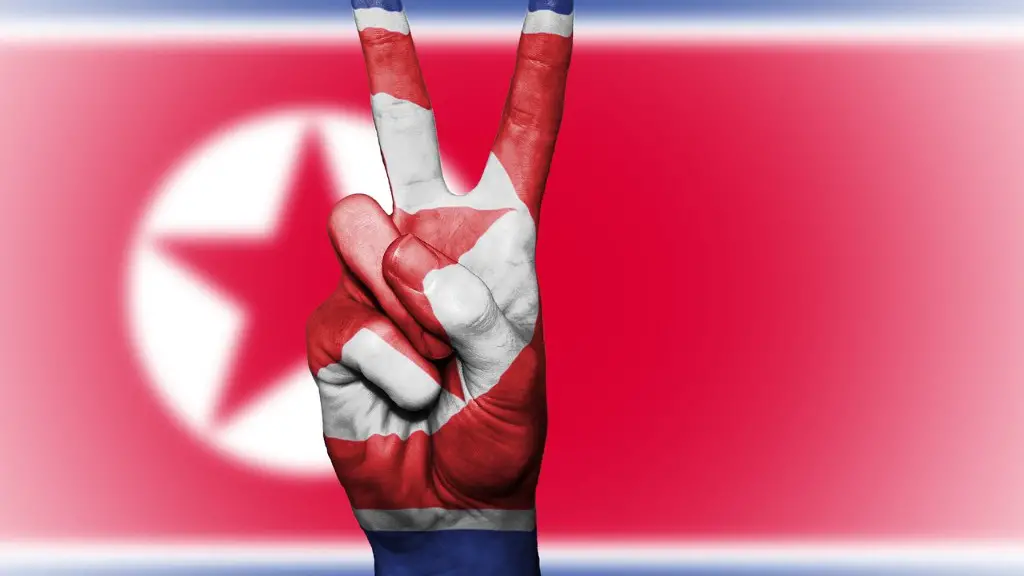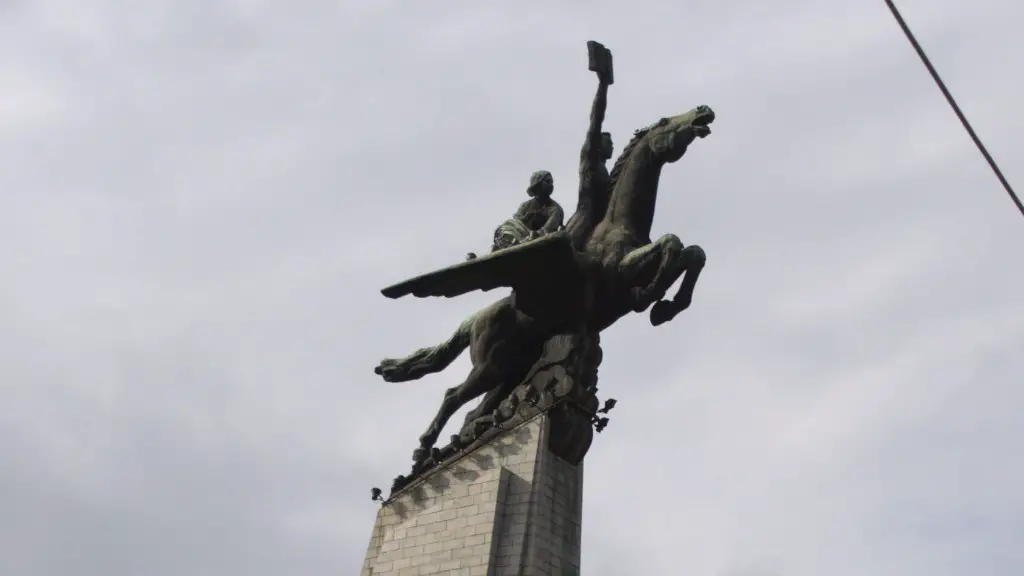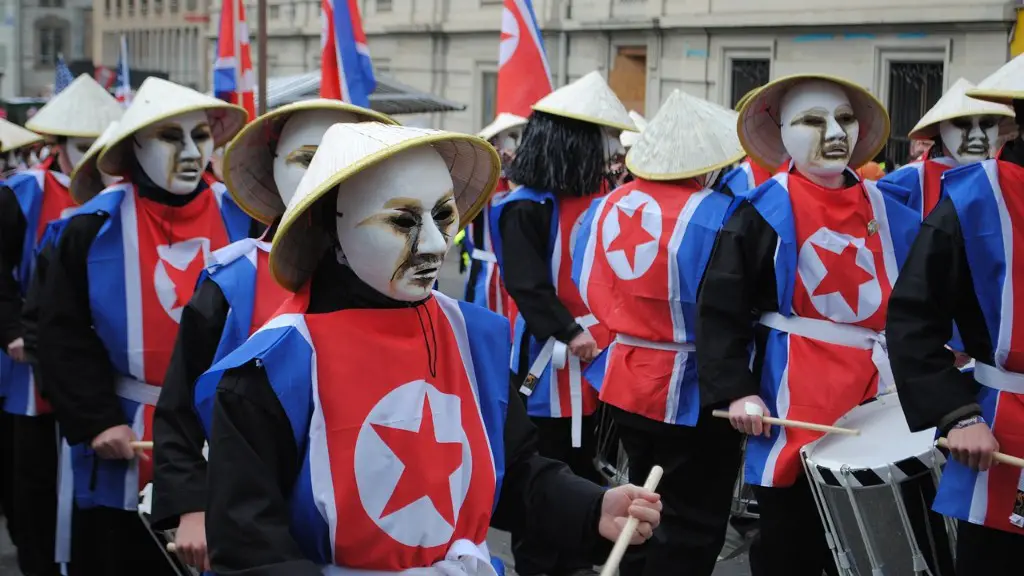It is a question often asked: Does Australia trade with North Korea? Right now, the Australian government does not conduct any trade with North Korea. In fact, Australia has imposed trade sanctions against the country in an effort to prevent funds, goods and services that could be used to support the North Korean nuclear weapons program.
Australian foreign policy towards North Korea is predicated on the belief that Pyongyang must rescind its nuclear ambitions and re-engage with the international community. This position is shared by the United States and other countries in the region, and it is reflected in United Nations Security Council resolutions. Australia is a signatory to these resolutions and has taken significant effort to ensure that they are adhered to.
The sanctions imposed by Australia against North Korea include bans on goods, services, and financial transactions related to North Korea’s nuclear weapons program. For example, goods originating from North Korea, or goods linked to North Korean organizations, must be subject to customs clearance. Financial transactions are blocked, and individuals and companies are subject to asset freezes.
Despite these restrictions, there have been reports of Australian companies and individuals engaging in trade with North Korea. However, these reports are largely anecdotal, and it is difficult to discern the true extent of Australian trade with North Korea. Given the vastness of its trading regime, identifying the source of goods and services can be extremely difficult. It is also possible that the reports are exaggerated, or that they represent localised instances of smuggling or black market transactions.
Nonetheless, the Australian government has been resolute in its rejection of any trade with North Korea. Australia’s diplomatic ties with North Korea are, at best, limited; the two countries do not have embassies in each other’s capitals. Australia has consistently called upon North Korea to abandon its nuclear weapons program and to pursue a path of peaceful dialogue and negotiation.
Sanctions: Economic Impact
The imposition of trade sanctions has had a severe economic impact on North Korea. According to the United Nations, North Korea’s economy shrank by 4.1 percent in 2018, compared to a 4.7 percent growth rate in 2017. This reversal is largely attributed to the punitive measures imposed by the international community, which severely restricts the country’s access to foreign trade and investments.
The UN also estimates that the total amount of North Korean imports and exports has decreased by more than half since 2013. North Korea’s exports have declined particularly drastically, likely due to a drop in demand for their goods. In addition, the country’s ability to access much-needed foreign exchange to purchase goods is severely hampered by the international sanctions regime.
The World Bank and International Monetary Fund have also expressed serious concerns about the economic situation in North Korea. Both organisations have called upon the international community to take action to alleviate the suffering of the North Korean people, and to open up trade channels between North Korea and the rest of the world.
Given the difficult environment, it is understandable why some countries have been reluctant to engage in business with North Korea. However, Australia believes that sanctions are the most effective way to pressure North Korea into ending its nuclear and missile programs.
North Korea: Political Environment
North Korea is one of the most repressive regimes in the world. Its governing ideology is based off of Juche, an extreme form of state-socialism, and its economy and political system are highly centralised. The country is notoriously isolated from the rest of the world, and its government employs a variety of methods to maintain control over its citizens.
The Supreme Leader of North Korea, Kim Jong Un, exercises absolute power and regularly exploits human rights abuses to maintain his grip on power. North Korea’s government does not typically respond to diplomatic criticism and does not allow political dissent. This has resulted in a culture of fear and a complete lack of freedom of expression.
The United Nations has highlighted North Korea’s dismal human rights record, but the regime remains largely immune to international efforts. North Korea does not have diplomatic relations with many countries, and its government remains isolated from the global community.
North Korea has a long history of provocation and aggression, and its nuclear weapons program is one of its most pressing concerns. The regime’s nationalist rhetoric poses a serious threat to regional stability. In addition, the opacity of the country’s international activities and the government’s refusal to cooperate with the international community prevent a meaningful dialogue between North Korea and the rest of the world.
North Korea: International Relations
Due in part to its nuclear weapons program, North Korea has long been a source of tension between the international community and the East Asian region. The international community has imposed various forms of economic sanctions against North Korea in the hopes of curbing its nuclear ambitions and re-establishing dialogue with the regime.
Australia has been a vocal contributor in the international response to North Korea’s nuclear weapons program. Australia has already implemented a range of sanctions against North Korea, and is continuing to collaborate closely with the international community to ensure that North Korea complies with its international obligations.
In addition to sanctions, Australia is committed to providing humanitarian assistance to North Koreans in need. Australia’s humanitarian efforts focus on supporting those affected by the food crisis and ensuring that basic necessities, such as food and medicine, reach people in need.
Australia’s contribution to the effort to resolve the North Korean situation is significant, but it cannot be done alone. The international community must continue to work together in order to ensure that North Korea’s human rights abuses are addressed, and that it abandons its nuclear weapons program.
Australia and North Korea: Prospects for the Future
As long as the North Korean nuclear weapons program continues, the possibility of trade between Australia and North Korea remains remote. Nevertheless, the Australian government remains committed to the pursuit of dialogue between North Korea and the international community and to improving the lives of the North Korean people.
Australia’s foreign policy towards North Korea is based on principles of non-proliferation, human rights protection and respect for international law. These principles have guided Australia’s stance on North Korea for years, and will continue to be the cornerstone of Australia’s approach to the North Korean problem.
It is clear that North Korea and Australia will not enter into any sort of trade agreement for the foreseeable future. However, there is an argument to be made for slowly re-engaging with North Korea and opening channels of communication. In doing so, Australia has the opportunity to encourage reform, provide humanitarian relief and help to create a more stable and peaceful East Asian region.
North Korea’s Negotiation Tactics
North Korea has employed a variety of tactics to engage with the international community. The primary goal of Pyongyang’s foreign policy is to obtain economic concessions in exchange for engaging in dialogue and negotiations. In the past few years, North Korea has mounted aggressive campaigns of rhetoric and provocation, but in the long term, it seeks economic gains.
North Korea’s engagement tactics often involve a combination of bluster and threats. The regime has used these tactics to successfully extract concessions, such as after it held military exercises in the Sea of Japan in 2017.
However, these tactics can also backfire. North Korea’s incendiary rhetoric has led to increasing international pressure, and the regime has been unable to capitalise on the negotiations it launched in 2018. Despite the bluster, North Korea has not achieved any significant economic gains, and the prospects for future negotiations remain unclear.
The international community has responded to North Korea’s tactics with a variety of tactics of its own, such as maintaining a strong United Nations presence in the region, enforcing sanctions and conducting security exercises. The goal of these responses is to apply pressure on Pyongyang, while also providing an effective platform for dialogue.
North Korea’s Domestic Issues and Prospects for Peace
It is clear that numerous and complex issues must still be addressed in order for North Korea to change its attitude towards the international community and for the country to become more transparent.
Moreover, North Korea’s nuclear program is embedded within the country’s domestic issues, such as poor governance and the absence of economic opportunities. Any attempt to negotiate the nuclear issue must also consider the welfare of the North Korean people, as the status quo has had a severe effect on their quality of life.
Despite the bleak assessment of the situation, some observers are cautiously optimistic about future prospects. North Korea has indicated a willingness to re-engage with the international community, as evidenced by its recent talks with the United States and South Korea.
It is difficult to predict what the future holds for North Korea and the international community, but it is clear that the situation is far from resolved. Australia’s stance remains firm, and it will continue to offer its support for a diplomatic resolution to the North Korean crisis.





